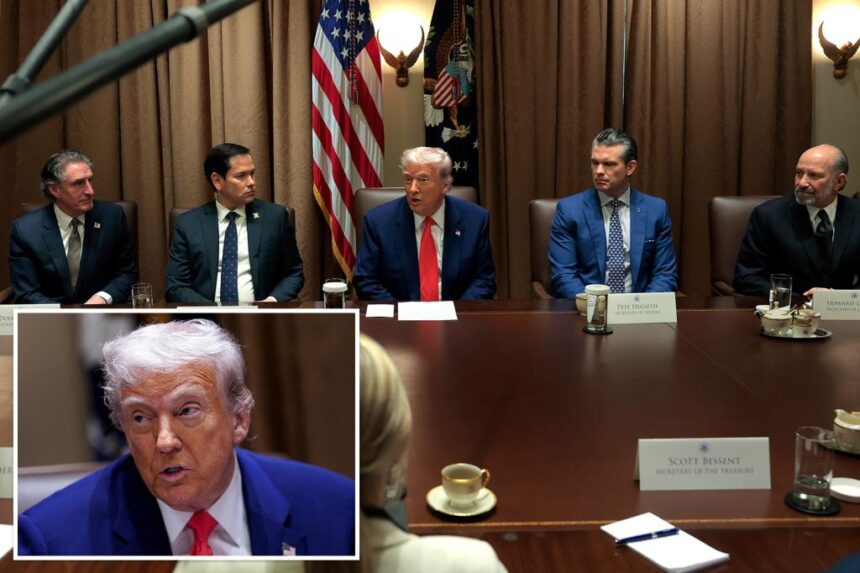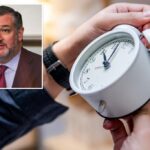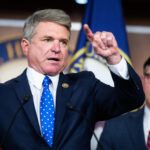
Washington – President Trump acknowledged that Thorsday may be “transition problems” in the economy due to his rates package, but insisted that tasks would be to be a “beautiful thing.”
“There will be a transition cost and transition problems, but in the end, it will be, it will be somewhat beautiful. We are doing again, what we should do many years ago,” Trump told journalists who last a cabinet meeting.
“There will always be difficulty of transition.”
The president postponed his package of global reciprocal rates for 90 days on Wednesday, except for a universal rate of 10% in most imports and a duty of 125% in China, which the White House clarified on Thursday that the day could the day could the day of the day of the day 145%.
This realization led to a fifth day of loser negotiation in the six since the announcement of the “release day” of the president, with the industrial average Dow Jones closing 2.5%, the S&P 500 fell almost 3.5%and the Nasdaq closed 4.
“We will see what happens to China,” Trump told journalists Thorsday. “We would love to be able to make a deal. They really have the advantage of our country for a long period of time. They have cheated us beyond anyone.”
The president also left the news that Beijing was reducing the amount of films made in the United States that would matter, giving a bronze: “I think I have heard of worse.”
The administration now has until July 8 to resolve commercial agreements one for one with the more than 75 countries that have contacted the White House.
“I thought people were jumping a little out of line, they were getting to Yippy, you know, they were getting a little YPy, a little scared,” Trump told reporters on Wednesday to explain their queues.
“In recent days, I’ve been thinking about it. I think he joined early this morning, quite early this morning. I just wrote it. We didn’t have access to lawyers. We wrote it from our hearts.”
Sources close to the tolerance of the White House were thinking of a possible pause since he spoke on Sunday with Treasury Secretary Scott Besent, who urged him to make deals with anxious countries.









